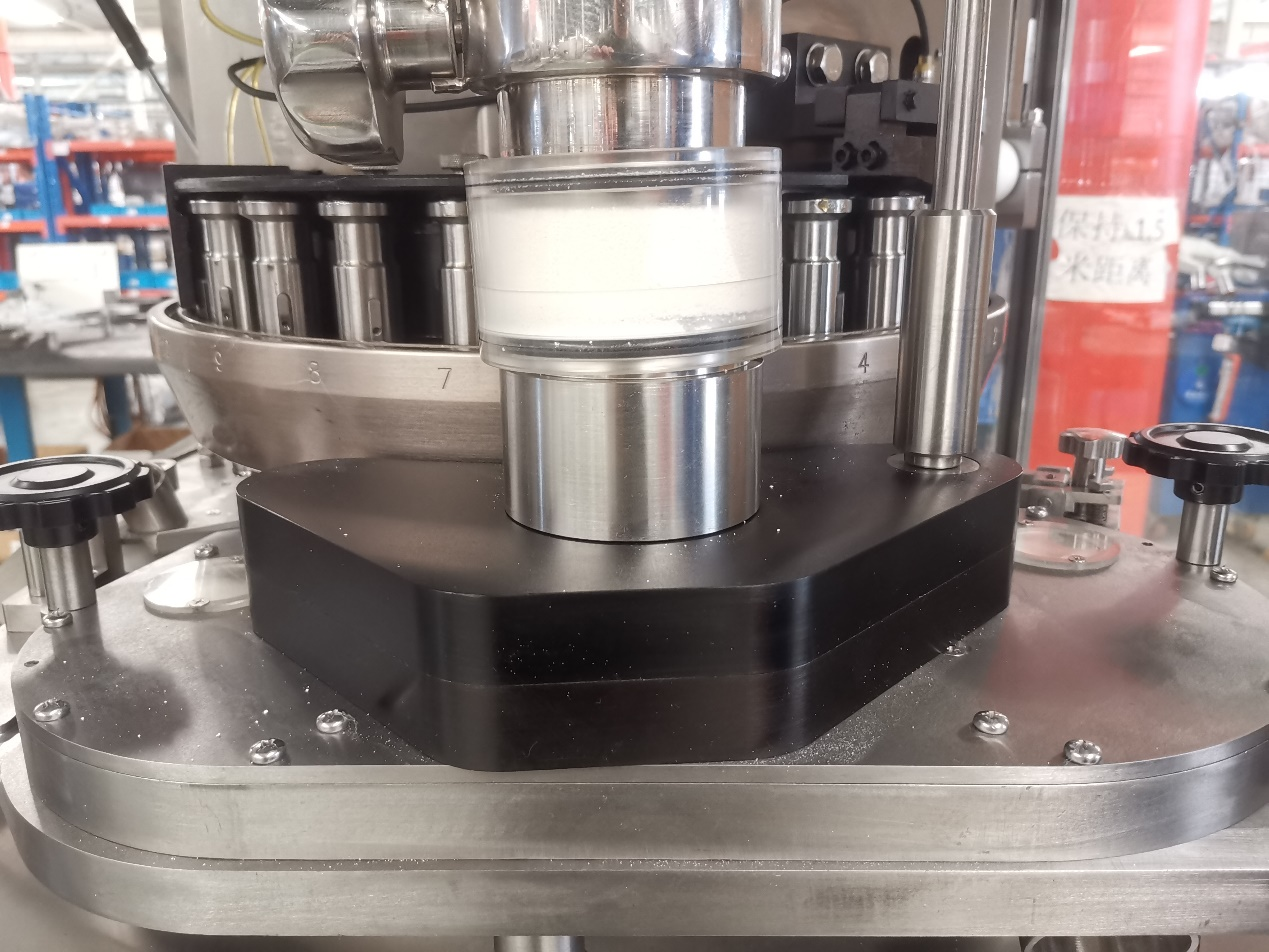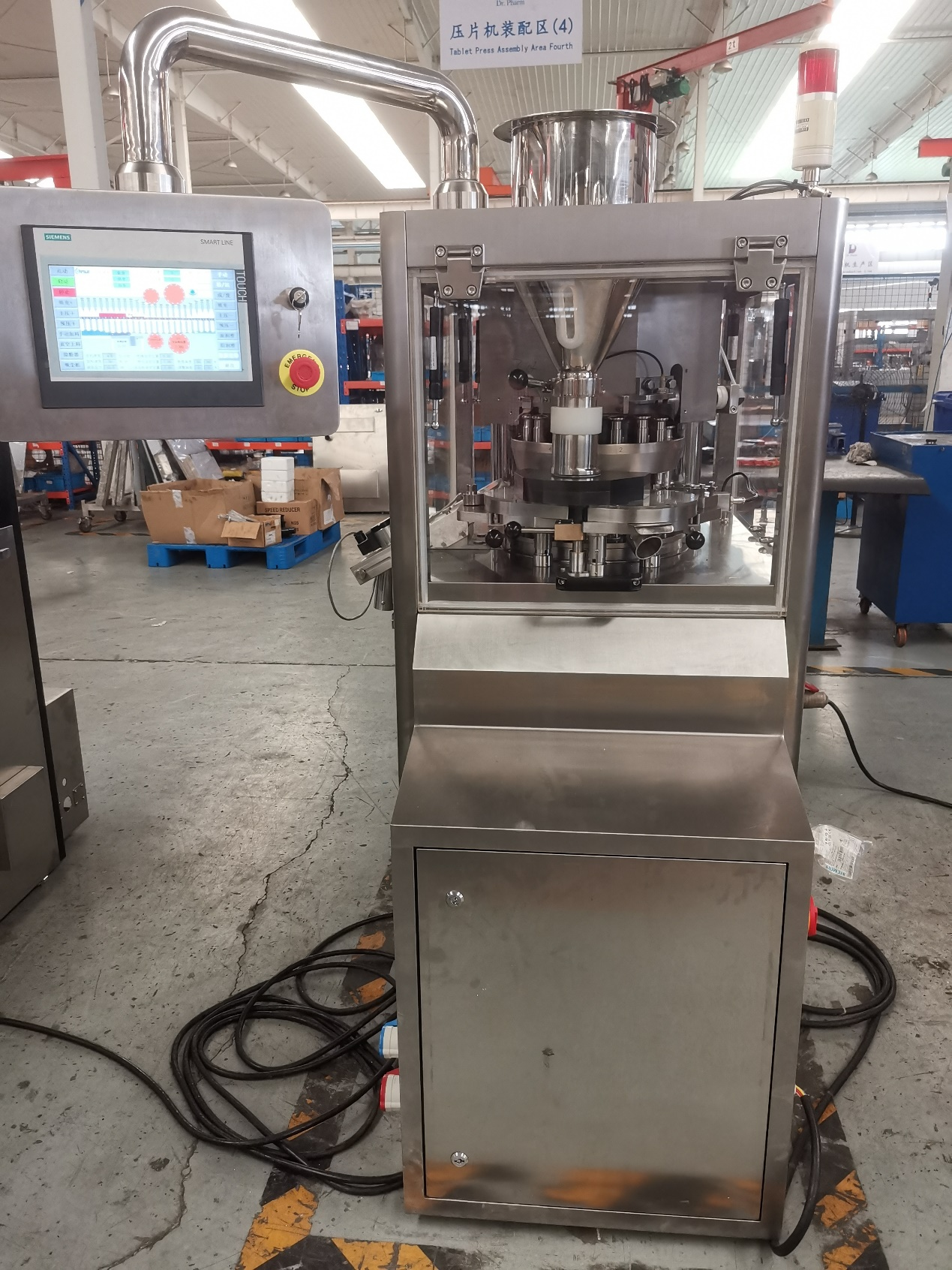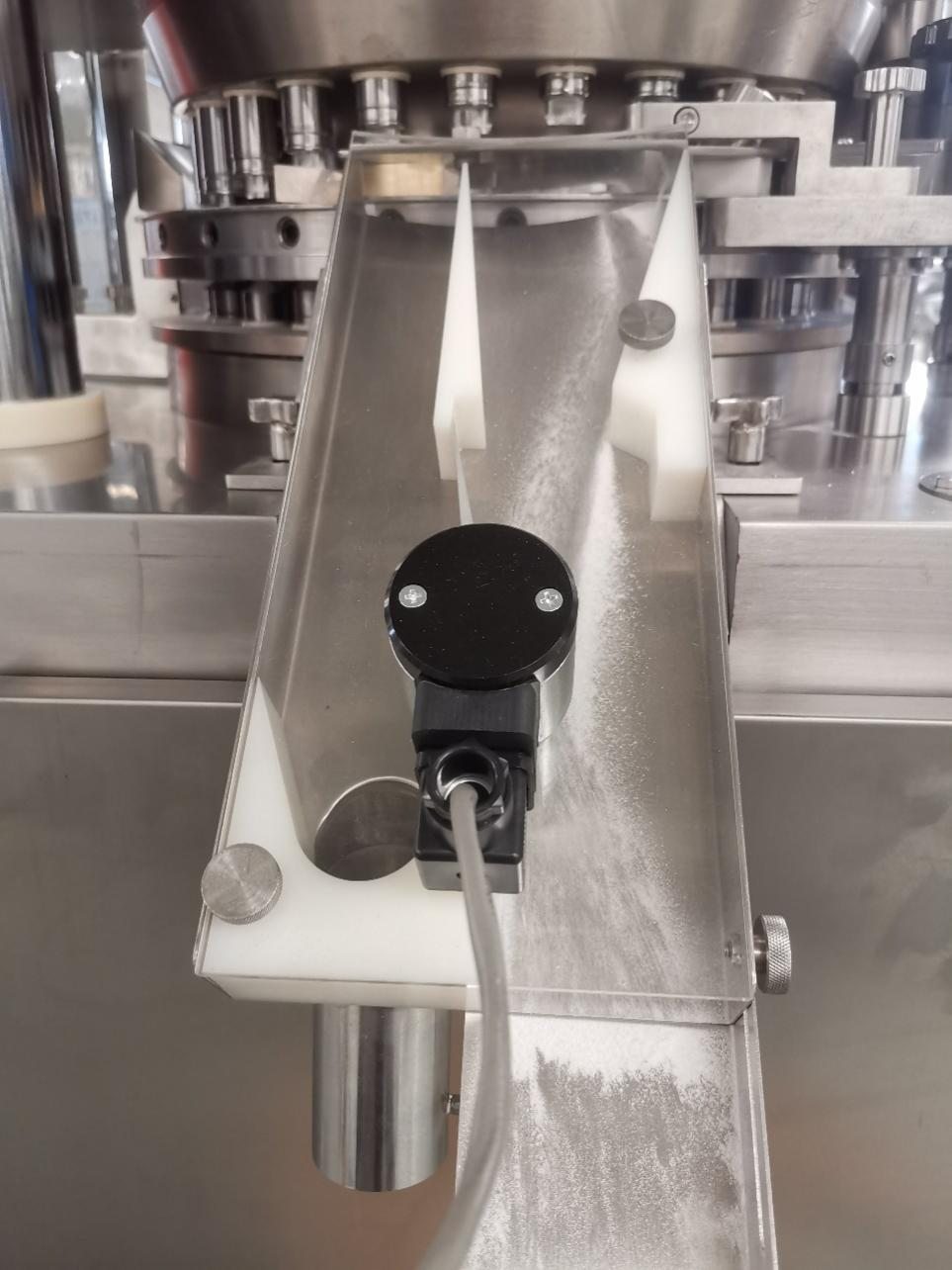
18 Sep Case Study-A Slovenian Client’s Success with Pharmaland’s PTP-16 Tablet Press Machine
Enhancing Efficiency and Precision: A Slovenian Client’s Success with Pharmaland’s PTP-16 Tablet Press Machine
Introduction
In the pharmaceutical industry, particularly in the production of health supplements, the need for precision and efficiency in manufacturing processes is paramount. A Slovenian client of Pharmaland, who specializes in producing tablets and hard capsules, Before upgrading to Pharmaland’s PTP-16, the client had been using some traditional tablet presses, which struggled with form tablets and ensuring consistency in tablet quality,faced significant challenges with their existing tablet press machines. These machines were incapable of ensuring consistent tablet weight and hardness, leading to high wastage rates.By transitioning to Pharmaland’s PTP-16 tablet compression machine, the client was able to achieve more precise control over tablet weight and hardness, significantly improving production efficiency and yield. This case study explores how Pharmaland’s PTP-16 rotary tablet press machine provided a solution that enhanced the client’s production efficiency and product quality.
Client’s Background and Initial Challenges
The client has a long-standing history in the pharmaceutical and health supplement industries, primarily producing tablets and hard capsules. Tablets, particularly round tablets, are a significant part of their product line due to their ease of consumption and popularity among consumers. However, producing tablets, especially with traditional tablet press machines, presented various challenges. The process of tablet compression requires precise control over the upper and lower punches to ensure each tablet meets the required standards for weight and hardness.
Despite using standard tooling and various other machines, the client struggled with consistent tablet quality. The previous equipment, including a single punch tablet press and other low-capacity machines, could not adequately control the weight and hardness, leading to frequent production issues. The client often found themselves dealing with large amounts of waste due to tablets not meeting the necessary quality standards. The inconsistency in tablet compression and the limitations of their existing equipment meant that the client’s production capacity was far below optimal levels.

Choosing Pharmaland’s PTP-16 Tablet Press Machine
Pharmaland’s technical team conducted a thorough assessment of the client’s production requirements and the issues they faced. It became clear that the solution lay in upgrading to a more advanced tablet pressing machine that could handle the complexities of tablet production. The PTP-16 rotary tablet press machine was recommended due to its advanced features and suitability for producing tablets in the pharmaceutical and food industries.
The PTP-16 is a high-efficiency rotary tablet press capable of producing up to 16,000 tablets per hour, making it ideal for both small batch production and large-scale operations. Its advanced control system allows for precise adjustments to the tablet weight and compression force, significantly reducing the risk of producing defective tablets. The machine’s turret design, combined with its ability to monitor and adjust the upper and lower punches, ensures consistent tablet quality, reducing the rate of wastage significantly.
Technical Advantages of the PTP-16 Tablet Press Machine
Tablet Weight Control: One of the standout features of the PTP-16 is its automatic control over tablet weight. The machine is equipped with a control system that monitors the actual pressure applied during tablet compression and compares it with the preset values. If any discrepancies are detected, the system automatically adjusts the powder filling, ensuring that each tablet meets the exact weight specifications. This capability is crucial in the pharmaceutical industry, where even minor variations in tablet weight can lead to significant quality issues.
Pressure Monitoring: The PTP-16 also excels in pressure monitoring. It can track the pressure exerted by each set of upper and lower punches and provide real-time data on pressure deviations. If any punch exceeds the preset pressure limits, the machine automatically stops, preventing damage to the equipment and reducing the risk of producing defective tablets. This feature is particularly useful when producing various kinds of tablets, as it ensures that each batch meets the required quality standards.
Production Yield: The PTP-16 allows operators to preset production targets. Once the machine has produced the required number of tablets, it automatically shuts down, ensuring that the production process is both efficient and controlled. This feature is particularly beneficial for small batch production, where precision and control over production capacity are crucial.
Waste Ejection: Another critical feature of the PTP-16 is its ability to automatically eject defective tablets during both startup and normal operations. The machine can detect tablets that do not meet the weight or quality standards and eject them before they are packaged. This process not only reduces waste but also ensures that only high-quality tablets reach the market.

User Access Control: The machine includes a multi-level login access system, ensuring that only authorized personnel can make adjustments to the machine’s settings. This feature helps prevent unauthorized changes that could damage the machine or compromise the quality of the tablets produced.
Lubrication System: The PTP-16 is equipped with dual lubrication systems designed for different parts of the machine. These systems reduce contamination and make maintenance easier, as operators can set the lubrication timing and intervals according to the machine’s needs. This feature contributes to the overall longevity and efficiency of the tablet press.
Feeding Mechanism: The PTP-16 uses a dual impeller forced feeding system, which ensures that the granular raw materials are fed consistently and precisely into the machine. This system is crucial for maintaining the accuracy of tablet weight and quality, especially when working with various kinds of raw materials.
Client’s Experience and Outcomes
After implementing the PTP-16 rotary tablet press machine, the Slovenian client experienced immediate improvements in their production process. The machine’s advanced control system and high efficiency allowed the client to produce tablets with consistent weight and hardness, drastically reducing the number of defective tablets. The ability to monitor and adjust the production process in real-time also meant that the client could optimize their production capacity, increasing their output without compromising on quality.
The client was particularly impressed with the machine’s ability to handle various tablet shapes and sizes, making it a versatile addition to their production line. The reduction in waste and the increase in production efficiency translated into significant cost savings, further enhancing the client’s satisfaction with their investment.
Conclusion
Pharmaland’s PTP-16 rotary tablet press machine has proven to be a game-changer for the Slovenian client, addressing the challenges they faced with traditional tablet press machines. The machine’s advanced features, including precise tablet weight control, pressure monitoring, and waste ejection, have allowed the client to achieve consistent tablet quality and optimize their production process. For other manufacturers in the pharmaceutical and food industries, the PTP-16 offers a reliable solution for enhancing production efficiency and ensuring product quality. Pharmaland remains committed to supporting its clients with cutting-edge technology and comprehensive after-sales support, ensuring long-term success in tablet production.
